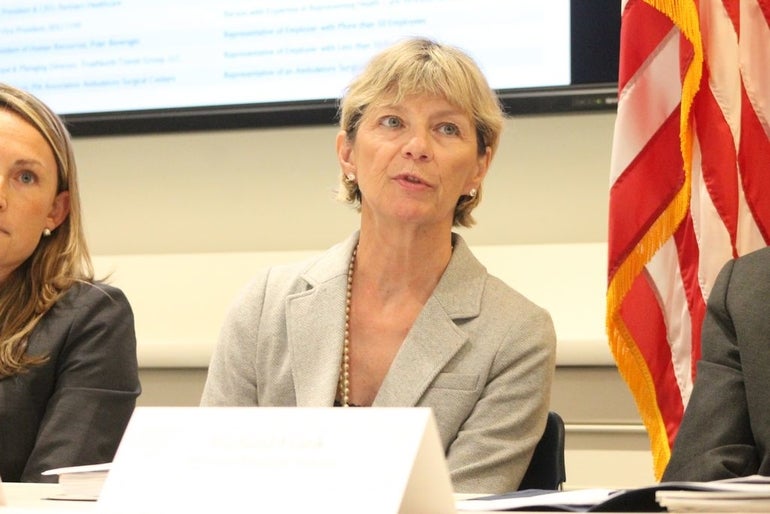As a hazy federal forecast leaves questions around the future of health policy, officials at the Massachusetts Health Connector say they’re planning for possibilities including the permanent loss of federal subsidies to insurers and a potential repeal of the individual health insurance mandate.
“We live in a world of uncertainty, but our commitment is just to keep full energy behind Massachusetts’ vision of universal coverage and accessibility to health coverage,” executive director Louis Gutierrez said Thursday after a meeting of the Connector’s board.
The future of cost-sharing reduction payments — federal subsidies to insurers to keep consumer costs down, which the Trump Administration halted in October — “may become clearer over the next month or so,” Gutierrez told the board.
The loss of the CSR payments pushed the Connector to set higher rates for 2018 so carriers could cover their losses. For the rest of 2017, the state is making up for the payments — a liability estimated to be about $28 million — with money from the Commonwealth Care Trust Fund.
Marylou Sudders, Gov. Charlie Baker’s Health and Human Services secretary, said Massachusetts was “the only state in the union that made a commitment to cover the cost of cost sharing reductions from the middle of October through the end of December,” a decision made because it was unclear what would happen in Congress and because health plans had the expectation of receiving the payments all year.
The Connector’s open enrollment insurance shopping and purchasing period runs through Jan. 23, and Gutierrez said the Connector is “prepared to lose about 25 to 30,000 members over the course of this open enrollment,” as members of unsubsidized plans are hit by rate hikes. He said he expects membership to gradually tick back up in 2018.
The open enrollment period began with a total Health Connector membership of 255,018, and decreased in December to 252,280, according to the Connector.
Audrey Gasteier, the Connector’s chief of policy and strategy, said the “worst case scenario” is that people drop their Connector coverage and do not end up on another plan. In the fallout over the end of CSRs, the Connector’s other concerns, she said, include confusion and “general frustration among members” who already are struggling to pay for their insurance.
With state dollars closing the CSR gap in 2017 and higher rates in place to cover it in 2018, the Connector “will very rapidly need to pivot to thinking about 2019” and what approach to take, Gasteier said.
Gutierrez said federal legislation to fund CSRs “would be a big help for 2019 rates.”
Gutierrez said U.S. Sen. Susan Collins of Maine continues to work toward reupping CSR payments, “but it’s a very uncertain political situation.”
Collins, a Republican, has said she would vote for the tax bill her party backs if Senate Republicans promise a vote on two health care bills, including one that would reinstate CSR payments for two years, according to National Public Radio.
The tax bill could also have health care implications, as a deal reportedly reached by House and Senate Republicans includes language effectively ending the Obamacare individual coverage mandate by removing the penalties for not having insurance.
Massachusetts will retain its own individual mandate under the 2006 health care access law signed by Gov. Mitt Romney, but Connector staff warned of a potential “ripple effect” from the end of a national mandate.
The Congressional Budget Office has estimated that repeal would cause 4 million individuals to lose coverage by 2018 and 13 million by 2025, according to the Connector.
Repeal of the federal mandate could increase the risk assumed by insurers, causing more to leave the individual market, and any potential new federal policy launched in response to people losing coverage could have impacts on Massachusetts, Gasteier said.
Nancy Turnbull, who sits on the Connector board, said she worried that, if the repeal goes through, people in Massachusetts might drop their health insurance because they hear there’s no longer a federal mandate, “and they’ll be surprised to discover we have a state one.”

